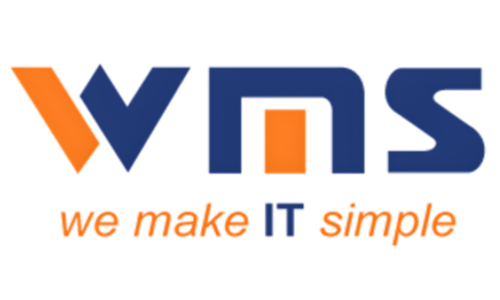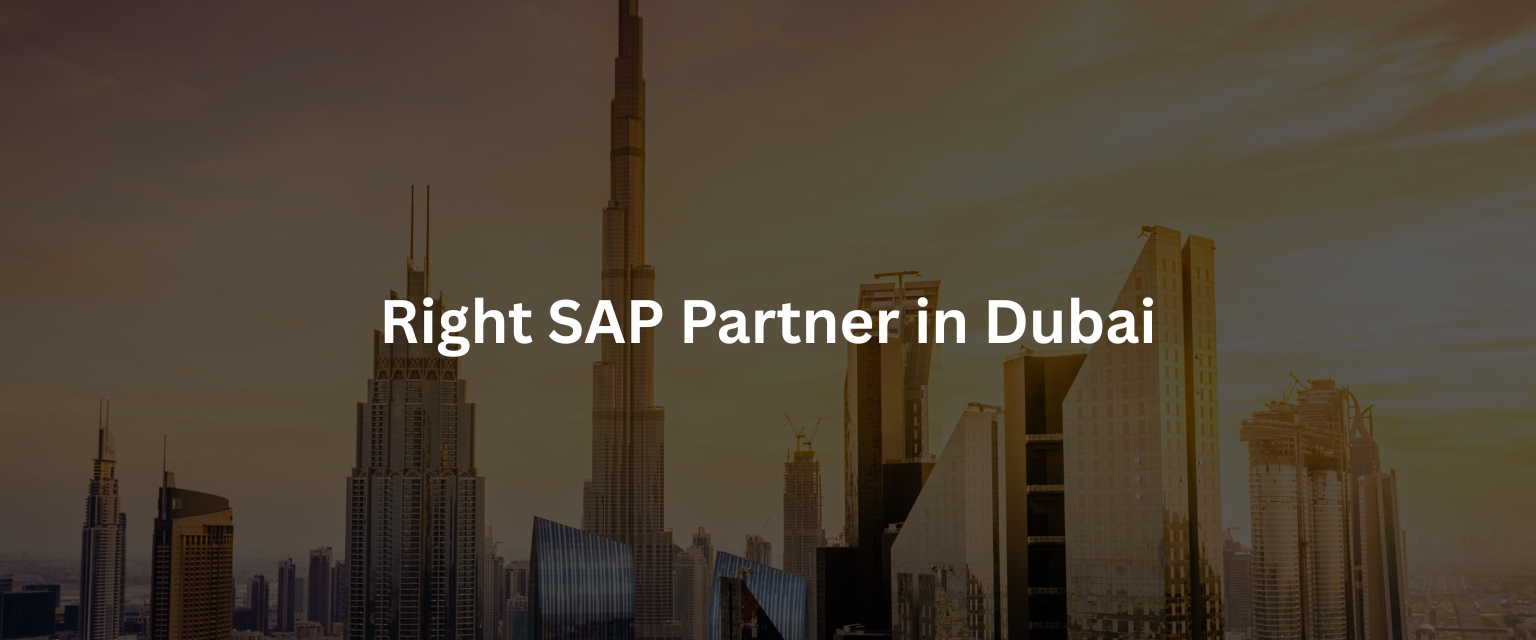Picture this: Your company just invested millions of dirhams in a state-of-the-art SAP system. The implementation partner you hired has all the right certifications, decades of technical experience, and an impressive portfolio. Yet six months after go-live, your team is struggling. Employees avoid using the new system. Processes are slower than before. And you’re left wondering: what went wrong?
This scenario plays out more often than you might think. According to recent industry data, approximately 55% to 75% of ERP projects fail to meet their objectives, with 50% failing on their first attempt. Even more concerning, 90% of SAP implementations fall short due to lack of adoption by employees or business units. And here’s the real shocker: most ERP projects exceed initial budgets by three to four times and take 30% longer than anticipated.
For industrial businesses in Dubai—whether you're in manufacturing, retail, FMCG, real estate, or logistics—these aren't just statistics. They represent real risks: operational disruptions, financial losses, competitive disadvantages, and missed opportunities in one of the world's most dynamic business environments.
The problem? Most companies focus almost exclusively on technical expertise when selecting their SAP implementation partner. While technical skills matter, they’re only part of the equation. The difference between a successful transformation and a costly failure often comes down to factors that don’t appear on certification badges or technical spec sheets.
Why Traditional Partner Selection Fails Dubai Businesses

The UAE’s business landscape is unique. The Middle East ERP software market reached $1.42 billion in 2024 and is projected to surge to $4.26 billion by 2030, driven by retail, e-commerce growth, and digital transformation initiatives. Dubai continues advancing as a leader in innovation, with businesses leveraging AI, blockchain, cloud computing, and IoT to maintain competitive edges.
But this rapid digital transformation brings distinctive challenges:
Legacy systems that resist modernization. Many Dubai enterprises have accumulated thousands of applications over the years, creating rigid infrastructures that hinder growth and integration.
Cultural resistance to change. Digital transformation demands behavioral and cultural shifts within organizations, which can be especially difficult for businesses with long-standing practices.
Multi-cultural workforce dynamics. Warehouses and operations across Dubai, Abu Dhabi, and Sharjah often combine teams speaking Arabic, English, Hindi, Urdu, and Tagalog, requiring partners who understand this complexity.
Regulatory compliance complexity. From UAE VAT to e-invoicing requirements and industry-specific regulations, your SAP partner must navigate local compliance while maintaining global best practices.
When selecting an implementation partner based purely on technical credentials, you risk overlooking critical soft skills and cultural competencies that determine whether your team actually adopts and benefits from the new system.
What Really Matters: The Five Critical Success Factors
So what should Dubai businesses actually look for? Based on analysis of successful implementations and industry best practices, here are the factors that separate exceptional SAP partners from mediocre ones:
Industry-Specific Experience and Local Market Knowledge

Your implementation partner needs to speak your industry’s language. Whether you’re in automotive, pharmaceuticals, food and beverage, electronics, or construction, your partner should have a proven track record in your specific sector.
Each industry has unique challenges, regulations, and best practices. A partner with deep industry knowledge can anticipate potential roadblocks, recommend tailored solutions, and ensure your implementation aligns perfectly with industry standards. For Dubai businesses, this means understanding not just global SAP capabilities but also regional requirements—from Good Manufacturing Practices (GMP) regulations in pharmaceuticals to Free Zone customs reporting for JAFZA operators.
WMS Middle East, as a SAP Gold Partner since 2009, brings specialized expertise across manufacturing, retail, trading, FMCG, and logistics sectors throughout the Middle East, Europe, Asia, and Africa. Their work with companies like Black Tulip Flowers, Al Burj Holding, Jacky’s Retail, and Herman demonstrates successful implementations across diverse industrial contexts.
What to look for:
- Case studies from your specific industry and region
- Consultants who understand your operational challenges without lengthy explanations
- Familiarity with industry-specific SAP modules and vertical solutions
- Experience with UAE regulatory requirements and compliance standards
Cultural Fit and Partnership Philosophy

This is the most overlooked yet arguably most important selection criterion. Cultural fit has a massive impact on technical capability, cost management, and project success.
Cultural fit determines how well your partner’s consultants will work with your teams, align with your company values, and adapt to your organizational dynamics. It affects communication style, responsiveness, project management approach, and whether the partner views themselves as a collaborative partner or detached service provider.
For Dubai’s multicultural business environment, cultural intelligence becomes even more critical. Your partner must navigate different communication styles, work effectively across language barriers, and understand the unique dynamics of UAE business culture.
What to evaluate:
- How the partner manages stakeholder expectations during initial discussions
- Their ability to align with your internal teams’ working styles
- Communication frequency, transparency, and responsiveness
- Whether they focus on educating your team versus just executing tasks
- Shared vision regarding long-term partnership rather than transactional relationships
According to research on Systems Integrator selection, while technical capability matters, cultural fit is the number one factor for successful SAP S/4HANA migration projects because it influences all other success areas.
Change Management and Communication Excellence

SAP implementations don’t fail because of technology—they fail because of people. Effective communication ranks among the most critical skills needed, with 96% of decision-makers and 95% of employees identifying it as essential.
Your implementation partner must excel at organizational change management, not just technical change management. This means engaging and motivating employees at all levels to embrace new ways of working through early and frequent communication, addressing resistance, providing transition support, and fostering continuous learning cultures.
The SAP Change Management Index 2025 revealed that 54% of SAP change managers report their roles have evolved from troubleshooting to driving transformation through communications, training, and engagement. Yet legacy challenges persist: 46% start from scratch every time, 44% need months to gather requirements, and 42% struggle to scale change management.
Key capabilities your partner should demonstrate:
- Structured change management methodology with proven frameworks
- Clear communication plans that keep all stakeholders informed
- Training programs tailored to different user roles and skill levels
- Strategies for addressing resistance and building user buy-in
- Post-implementation support that includes change reinforcement
Knowledge Transfer and Capability Building

One of the biggest differentiators between great and mediocre partners is their commitment to knowledge transfer. The best partners focus on building your internal capabilities, not creating ongoing dependencies.
Effective knowledge transfer involves clear objectives, active collaboration, thorough documentation, hands-on training, mentorship programs, and leveraging technology platforms. Your partner should provide comprehensive training programs, detailed documentation tailored to your specific configuration, and clear processes for transitioning system administration to your team.
Essential knowledge transfer elements:
- Role-specific training sessions that go beyond basic system navigation
- Documentation of customizations and configurations in accessible formats
- Pairing of consultants with key team members for mentorship
- Transfer of both explicit knowledge (documented procedures) and tacit knowledge (experience-based insights)
- Creation of internal centers of excellence to sustain capabilities
If your partner seems evasive about knowledge transfer, they’re likely planning to keep you dependent on their consulting services indefinitely—a red flag that should prompt you to look elsewhere.
Post-Go-Live Support and Continuous Improvement

The implementation project may end, but your need for expertise doesn’t. Post-go-live support is critical for ensuring smooth transitions from implementation to daily operations.
Even minor system errors can become significant disruptions after go-live. Continuous monitoring and problem-fixing ensure business continuity. Effective post-implementation support includes application maintenance and monitoring, user support and training, system optimization and enhancements, patch management and updates, performance tuning, and integration troubleshooting.
The stabilization phase typically lasts one to two months after go-live, during which the implementation team provides critical support while the organization adjusts to new workflows. Without adequate support during this period, adoption rates plummet and the system’s value diminishes.
What comprehensive post-go-live support includes:
- Proactive system performance monitoring to identify issues before they cause disruptions
- Responsive helpdesk support for user questions and technical problems
- Regular optimization reviews to improve efficiency as your business evolves
- Continuous improvement planning aligned with business growth
- Performance measurement against defined KPIs to ensure value delivery
Actionable Steps: How to Evaluate and Select Your SAP Partner

Now that you understand what matters, here’s a practical framework for making your selection:
1: Define Your Requirements Holistically
Before contacting potential partners, clearly articulate what you need—not just technically, but strategically. Identify your business goals for the next five years, specific pain points the SAP system should address, critical success factors beyond technical implementation, cultural aspects of your organization, and desired outcomes in measurable terms.
2: Look Beyond Certifications to Real Experience
SAP certifications and partnerships matter, but dig deeper. Request detailed case studies from your industry and region, ask about specific challenges they’ve solved for similar businesses, investigate their consultants’ industry experience (not just SAP experience), and verify their understanding of UAE-specific requirements and regulations.
WMS Middle East’s SAP Gold Partner status since 2009, combined with their portfolio across manufacturing, retail, FMCG, and logistics in the Middle East region, demonstrates both technical credibility and relevant experience.
3: Assess Cultural Fit Through Direct Interaction
Schedule workshops or “clean room” sessions with your top two or three candidates. These working sessions reveal how potential partners think, communicate, and collaborate far better than polished presentations ever could.
Pay attention to how they listen, whether they ask insightful questions, their responsiveness to your concerns, and whether you sense genuine partnership potential.
4: Evaluate Their Change Management Approach
Ask candidates to describe their change management methodology in detail. How do they ensure user adoption? What strategies do they use to address resistance? How do they measure adoption success?
Partners who focus only on technical aspects without robust change management plans should raise red flags.
5: Verify Knowledge Transfer Commitment
Request examples of knowledge transfer documentation from past projects. Ask about their training methodology and who delivers the training. Understand their approach to building internal capabilities versus creating dependency.
Partners committed to your long-term success will have clear, structured knowledge transfer programs they’re eager to discuss.
The WMS Middle East Advantage
- For Dubai industrial businesses seeking an SAP implementation partner who delivers beyond technical skills, WMS Middle East offers a compelling combination of credentials and capabilities:
- Proven Regional Expertise: As a SAP Gold Partner serving the Middle East, Europe, Asia, and Africa since 2009, WMS brings deep understanding of regional business environments, regulatory requirements, and cultural dynamics.
- Industry-Specific Solutions: With successful implementations across trading, retail, food and beverage, manufacturing, FMCG, and project management, WMS understands the unique challenges of Dubai's key industrial sectors.
- Track Record of Success: With 100+ satisfied clients including Black Tulip Flowers, Al Burj Holding, Jacky's Retail, Herman, and Platinum Baz, WMS has demonstrated the ability to deliver successful outcomes across diverse business scenarios.
Your Next Step Toward SAP Success
Choosing the right SAP implementation partner is probably the biggest single decision you’ll make in your digital transformation journey. The partner you select will have a massive impact on whether your investment delivers transformational value or becomes a cautionary tale.
Don’t let impressive technical credentials blind you to what really matters. The most successful SAP implementations in Dubai result from partnerships built on industry expertise, cultural alignment, change management excellence, knowledge transfer commitment, and comprehensive support.
Your business deserves a partner who brings all these elements together—one who sees your success as their success and commits to the partnership long after go-live.
Ready to discuss your SAP implementation with a partner who looks beyond technical skills to deliver real business transformation?
Contact WMS Middle East today to explore how our comprehensive approach to SAP implementation can help your Dubai business achieve its digital transformation goals. Request a demo or consultation to discover the WMS difference.
FAQS:-
What are SAP’s key AI and data tools for sustainability in the UAE?
SAP’s tools include the Sustainability Control Tower, SAP S/4HANA, integrated analytics, AI-powered anomaly detection, predictive forecasting, automated ESG reporting, and conversational AI assistants to streamline sustainability monitoring.
How do these tools help UAE companies stay compliant?
SAP’s AI automatically collects and validates data, generates audit-ready reports, tracks evolving UAE and international requirements, and provides real-time alerts, reducing compliance risks and manual workload.
Can SAP’s AI tools predict and prevent sustainability risks?
Yes, predictive analytics in SAP highlight trends, forecast potential compliance gaps, and recommend proactive actions—helping companies avoid penalties and reputational damage.
How do AI and automation reduce manual work?
Routine data collection, cleansing, reporting, and supplier tracking are all automated, freeing your sustainability team to focus on strategy, innovation, and continuous improvement.
Who can use SAP’s sustainability dashboard and tools?
SAP’s dashboards and AI insights are role-based—COOs, finance, operations, sustainability leads, procurement, and even auditors can access actionable, relevant data.
How secure is the data used in SAP’s sustainability platforms?
SAP provides enterprise-grade cloud security, including encryption, access control, compliance with UAE regulations, and regular audits to keep your data safe.
Are SAP AI-powered sustainability solutions suitable for SMEs in the UAE?
Yes, cloud-based and modular SAP tools make advanced capabilities accessible and scalable for both large enterprises and mid-sized firms.
What is the biggest hurdle for UAE companies adopting AI for sustainability?
Ensuring data accuracy and consistency is essential. Change management and initial staff training are also key for successful adoption.

Mahitab Maher
SAP professional specializing in SAP products, helping companies turn complex processes into smooth, scalable operations.



Great insights! Many companies only consider technical expertise when choosing an SAP partner, but the points on communication and long-term support are spot on
Thanks, Sophia! You’re absolutely right — technical skills matter, but the right partner must also guide, communicate, and support throughout the entire journey. Glad the article added value!
Clear and easy to follow, even for non-technical readers. The examples made it much easier to understand the importance of a single data source.
Thanks, David! We’re happy to hear the article was easy to follow. Making complex data topics understandable for everyone is exactly what we aim for.
A very relevant topic for enterprises today. I like how this blog focuses on business impact, not just data tools or platforms.
Thanks for your feedback, Laura. Focusing on business outcomes is essential—data initiatives are most effective when they directly support operational and strategic goals.
This article was worth the time to read. The information was useful and presented in a very clear way.
Appreciate your feedback, Faisal. We’re glad you found the content useful and easy to follow. Thanks for taking the time to comment.
This was a very informative read. I appreciate the effort you put into explaining the topic so clearly. I found myself reading the entire article without skipping.
Thank you, Adrian. We’re glad the article kept your interest throughout. Your feedback encourages us to continue creating clear and informative content.